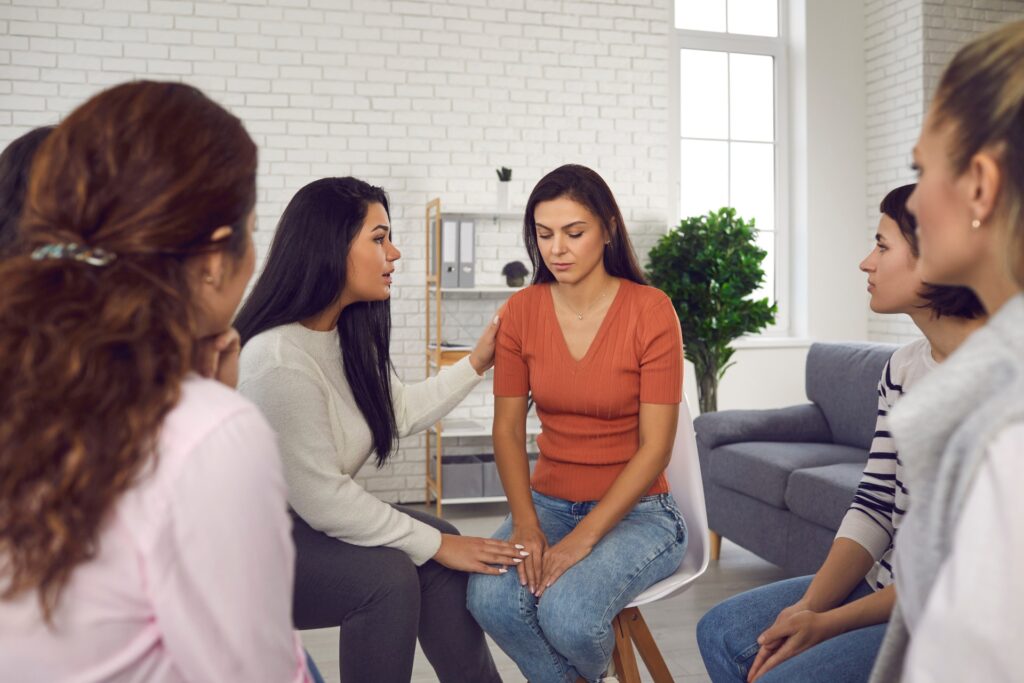The holiday season is often associated with joy, celebration, and spending time with loved ones. However, for many people, it can also be a source of stress, anxiety, and depression. Holiday depression, sometimes referred to as the “holiday blues,” affects a significant number of individuals each year, often leaving them feeling isolated and overwhelmed. If you’re struggling with feelings of sadness or anxiety during the holidays, it’s important to recognize the signs and understand how to manage these emotions.
At First Steps Recovery, a residential rehab and detox facility in Clovis, California, we recognize the challenges of coping with depression during the holiday season. We know it can be especially for those already managing addiction or other mental health issues. It’s important to come up with coping skills and prepare for this season of celebration (and stress).
What is Holiday Depression?
Holiday depression is the feeling of sadness, anxiety, or stress that can emerge during the holiday season. While holidays are often portrayed as a time of happiness and togetherness, many individuals experience the opposite. There are many potential triggers, including:
- Financial strain
- Grief from losses over the previous years
- Pressure to spend time or money
- Social isolation
- Burnout
- Feeling unable to express true emotions/opinions
- Family conflict
- Increased pressure to meet expectations
- Pressure to participate in all available activities
- Shorter days and less sunlight, which may trigger seasonal affective disorder (SAD)
While some people may feel down temporarily, others may experience more significant symptoms of depression, affecting their mental health long after the holiday season ends.
Is it Normal to Feel Depressed During the Holidays?
Yes, it is normal. While this time of year is often associated with joy, celebrations, and togetherness, many people experience symptoms of depression or “feeling down.”
It’s important to acknowledge negative emotions, even if they feel “wrong” for the season or occasion. Taking care of your mental health through self-care, reaching out to loved ones, or speaking with a professional can help you navigate these feelings.
Holiday Depression vs. Seasonal Depression

It’s important to differentiate between holiday depression and seasonal depression, also known as Seasonal Affective Disorder (SAD). While both can occur around the same time, they have distinct causes. Holiday depression is tied specifically to the stress and emotional challenges of the holiday season, while SAD is a type of depression related to changes in seasons. SAD most often occurs in the winter months due to reduced sunlight and naturally occurring vitamin D.
Both holiday depression and SAD can be serious and may require professional treatment, especially if symptoms persist or worsen.
Those with pre-existing mental illnesses may find that their symptoms are aggravated during the holiday season. According to the National Alliance on Mental Illness (NAMI), nearly 64% of people with mental illness report that the holiday season worsens their condition.
Signs of Depression
Recognizing the signs of depression is crucial, especially during the holidays when it’s easy to dismiss feelings of sadness as normal holiday stress. Common signs of depression include:
- Persistent feelings of sadness or hopelessness
- Loss of interest in activities once enjoyed
- Difficulty concentrating or making decisions
- Changes in sleep patterns (sleeping too much or too little)
- Fatigue or lack of energy
- Feelings of worthlessness or guilt
- Increased irritability or anxiety
- Thoughts of self-harm or suicide
During the holiday season, people may turn to substance use as a way to cope with their emotions. Alcohol and drug use may seem like an escape from stress or sadness, but it often exacerbates the problem and can lead to addiction.
How to Cope with Holiday Depression
Dealing with holiday depression requires a proactive approach to managing stress and emotions. While the holiday season can be challenging, there are several strategies to help you cope and maintain your mental health.
Manage and Cope with Stress
Holiday stress may feel inescapable, but there are ways to lighten the mental load around the holiday season. Grinding through the season and waiting for the end isn’t productive coping. The effort to work through stress will allow more enjoyment and relaxation during the holiday season.
- Set Realistic Expectations: Don’t pressure yourself to create a perfect holiday experience. Accept that things might not go as planned, and that’s okay.
- Budget Wisely: Set a budget for holiday spending and stick to it. Financial strain can be a major source of stress, so managing your expenses can alleviate anxiety.
- Practice Self-Care: Make time for activities that help you relax, whether it’s reading, exercising, or spending time with close friends. Prioritize your mental health by taking breaks from holiday tasks when needed.
- Reach Out for Support: If you’re feeling lonely or overwhelmed, talk to someone you trust. Whether it’s a friend, family member, or therapist, sharing your feelings can help reduce the emotional burden.
- Avoid Substance Use: Using alcohol or drugs to cope with holiday stress may provide temporary relief but will likely worsen feelings of depression in the long run.
If your symptoms of depression are severe or persistent, it’s essential to seek professional help. Therapy, counseling, or a stay at a residential treatment center like First Steps Recovery can provide the support you need to manage your depression.
Recover from Depression and Addiction at First Steps Recovery
At First Steps Recovery, we understand how difficult it can be to navigate holiday depression, especially for those also struggling with addiction. Our residential rehab and detox facility in Clovis, California, offers a comprehensive approach to treatment, combining medical care, therapy, and holistic practices to help individuals recover from depression and substance use disorders.
If you or someone you love is struggling with holiday depression or addiction, don’t wait to seek help. Contact First Steps Recovery today to learn how we can support your journey toward mental health and recovery.
Dr. Belis Aladag is a board-certified physician in Addiction Medicine and Family Medicine, with a Master of Public Health from Johns Hopkins. She brings more than 15 years of experience in clinical care, medical education, and leadership. Recognized as a “Top Doctor” in Sacramento Magazine and Los Angeles Magazine, Dr. Aladag is dedicated to compassionate, evidence-based care and expanding access to mental health and addiction services.





